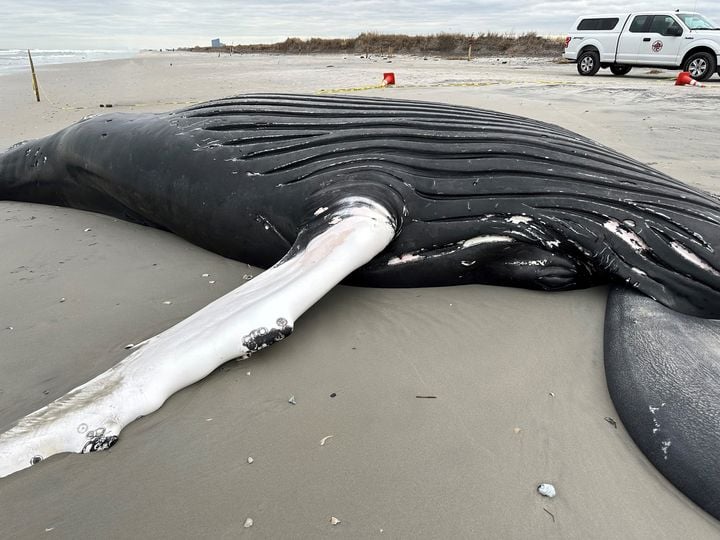TOMS RIVER, NJ – In the days after one of the biggest wind farm projects on the U.S. East Coast sunk below the waves, public officials at the Jersey Shore celebrated Orsted’s withdrawal from New Jersey as a victory for the community and the whales. Local officials at the Jersey Shore contend that the 2022-23 whale die-off that hit record numbers was linked to offshore sonar mapping.
The federal government, through the Biden administration’s Department of Energy once again reaffirmed their stance that the whale deaths have nothing to do with the sonar mapping off the coast of New York and New Jersey.
Amid concerns linking recent whale strandings along the East Coast to offshore wind farm development, the Department of Energy affirmed that federal agencies have found no evidence supporting these claims. The Bureau of Ocean Energy Management (BOEM) and the National Oceanic and Atmospheric Administration (NOAA), the primary authority on marine mammal science, report no connection between whale deaths and wind farm surveys.
These agencies, along with the Marine Mammal Commission and New Jersey Department of Environmental Protection, assert no significant harm to whales from early-stage wind energy activities. Research indicates vessel strikes and fishing gear entanglement as primary threats to whale safety.
As whale mortality investigations continue, agencies like NOAA, BOEM, and the Department of Energy (DOE) are committed to understanding the impact of marine activities on these mammals. The DOE emphasizes the role of wind energy in achieving the U.S.’s net-zero carbon emissions goal by 2050. It collaborates with various partners to balance offshore wind development with marine life conservation.
The DOE’s recent report, “Advancing Offshore Wind Energy in the United States,” outlines strategies for deploying 30 gigawatts of offshore wind energy by 2030, enough to power 10 million homes and generate significant economic and employment benefits.
This strategy involves research to minimize impacts on marine ecosystems. The DOE supports projects for environmental data collection, technological innovations for marine mammal protection, and sustainable ocean-area co-use.
